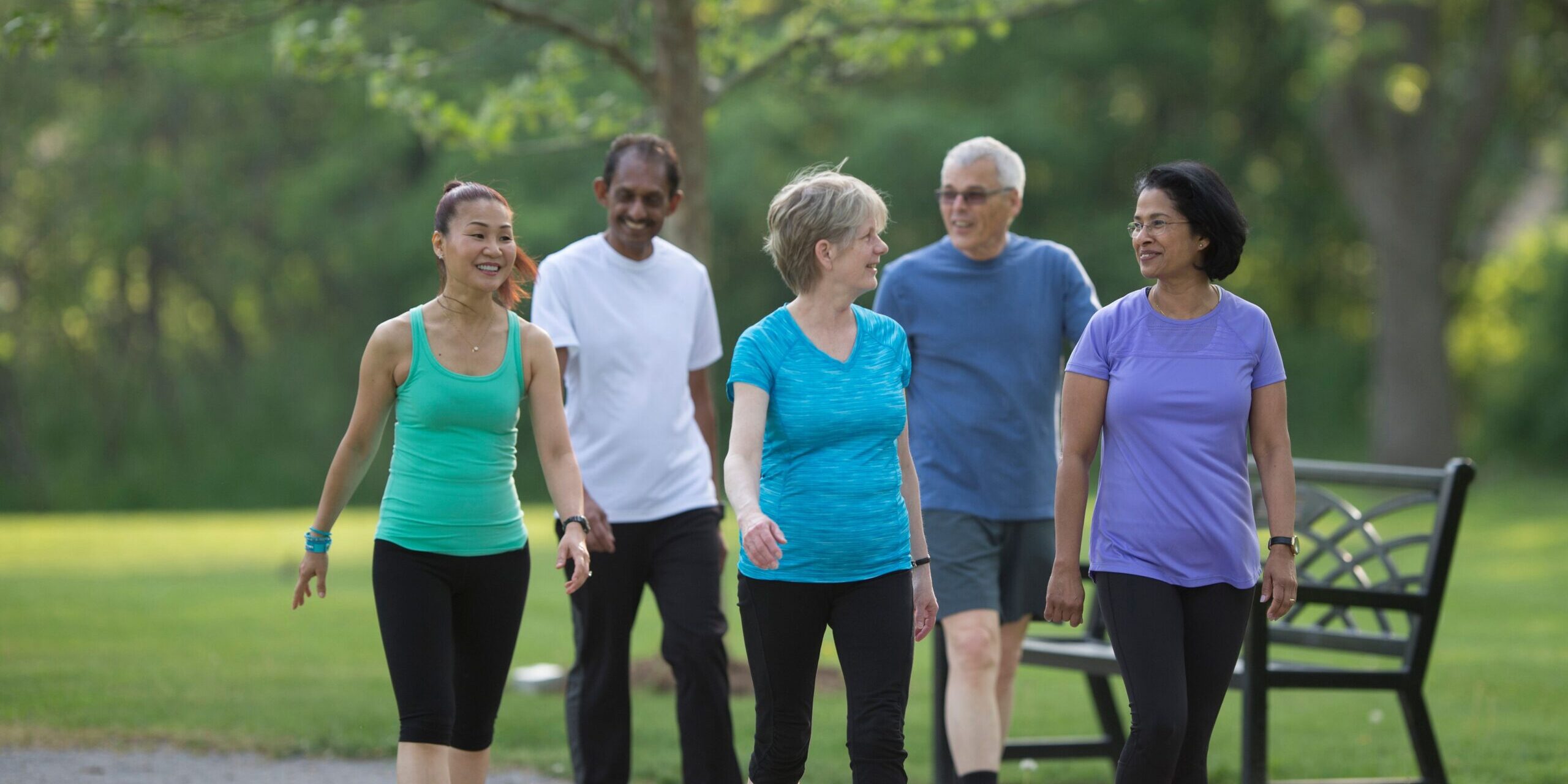We all know exercise is good for us, but sometimes the gym can feel intimidating, or life just gets too busy. The good news? One of the most accessible and beneficial forms of exercise is right at your feet: walking. And when it comes to heart health, walking packs a powerful punch. This isn’t about marathon training. Even moderate, regular walking can significantly improve your cardiovascular health and reduce your risk of heart disease.
Walking’s heart-healthy perks:
Lowers blood pressure: Walking helps manage blood pressure by strengthening your heart and improving blood flow. This reduces the strain on your arteries, lowering your risk of hypertension.
Boosts HDL (“good”) cholesterol: Regular walks can increase levels of high-density lipoprotein (HDL) cholesterol, which helps remove “bad” cholesterol from your arteries, preventing plaque buildup.
Strengthens your heart muscle: Just like any other muscle, your heart benefits from regular exercise. Walking strengthens the heart, allowing it to pump blood more efficiently throughout your body.
Stress reduction: Walking isn’t just good for your physical health; it’s great for your mental well-being too. Stress hormones can negatively impact heart health, and walking is a great way to relieve stress and improve your mood.
No need for fancy equipment or expensive gym memberships, lace up a comfortable pair of shoes and get moving. Aim for consistency; even short, daily walks are more beneficial than long, sporadic ones.
“I recommend my patients do moderate walking for 30 minutes, five times per week,” says Mather Medical Group cardiologist David Shenouda, DO. “A slow pace is okay, but a brisk walk is better. When walking you should be able to carry on a conversation but it should not be easy. Vigorous walking is when you are not able to engage in any conversation. With that said, start slowly and gradually work up over time with speed, duration and frequency. Most importantly, make it fun and take that first step because that’s always the hardest one. Any walking is better than sitting.”
Make your walks enjoyable by listening to music, exploring your neighborhood, or walking with a friend to boost your motivation. Most importantly, listen to your body. Pay attention to any signs of discomfort and stop if you experience pain. Consult your doctor before starting any new exercise program, especially if you have pre-existing health conditions.
Resources:
https://www.heart.org/en/healthy-living/fitness/walking
https://www.nhlbi.nih.gov/health/heart/physical-activity/benefits



